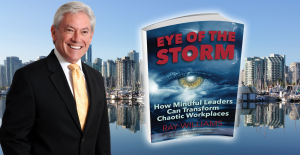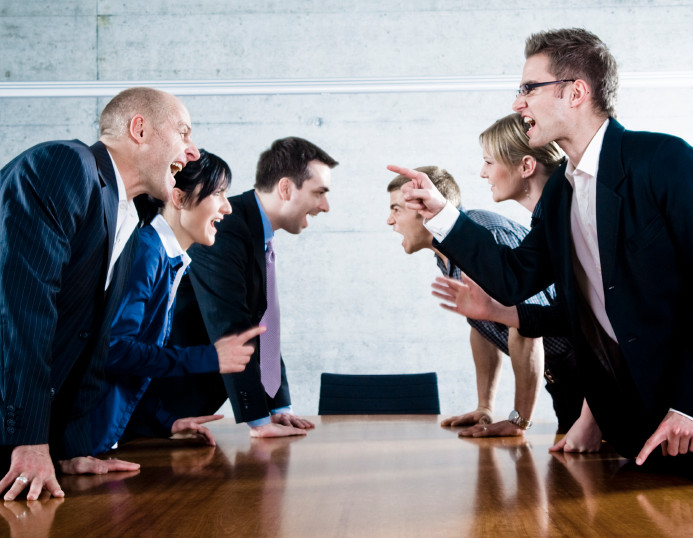This article is a 10 minute read.
Incivility is on the rise in America. Why? Because of the recent recession and growing economic inequality? Because the undercurrent of racism and anti-immigrant beliefs are now more in the open? Because of the increased polarization of political parties and views? Or the example set by prominent political and business leaders? And incivility during the 2018 midterm elections has risen to incidences of racism, vitriolic rhetoric and actual violence.
Civility and Incivility Defined
Civility is defined as formal politeness and courtesy in behavior or speech. Synonyms are courtesy, good manners, consideration, respect, graciousness. It is a Latin word that originated in 509 BCE when Romans founded their republic, and kings were driven from the city. Civility appeared over time from the word civis, which means citizen, that is, only men with property. It matured into civitas, meaning the rights and duties of citizenship, and then civilitas appeared, meaning the art and science of citizenship.
The rights of citizenship meant that citizens met in an assembly where they voted for their leaders: consuls, praetors, oediles, censors, and pontifex. It also meant the right to be governed under laws that they voted for and not subject to the whims of despots. Their duties were clear–serving with other citizens in centuries, cohorts, and legions, and providing for their own equipment–shields, swords, javelins, and helmets.
The Romans, in creating an empire that expanded around the world put great emphasis on civil virtue. The Romans believed in honest debate, civility in the streets and treating adversaries with respect, even if defeating them in battle. Historians looking at the fall of the Roman Empire have tried to find reasons why the great Empire failed. Many see the loss of the civil society as a major reason for the fall of the Romans. People stopped treating each other with respect. The Empire itself stopped treating those they conquered with respect. What was once a society of mutual respect for all became a society of overconfidence of complacency. The very values that made the Roman Empire great were the very values that were left behind. The Romans in creating an empire that expanded around the world put great emphasis on civil virtue. The Romans believed in honest debate, civility in the streets and treating adversaries with respect, even if defeating them in battle.
The English word civility comes from the French word civilité. The Norman and Plantagenet kings were French. The time period was the twelfth to the fifteenth century. I like to think that it was Eleanor of Aquitaine, Henry II’s wife and mother of Richard the Lion Heart and King John, who brought civility to the English. But the word had changed. Citizens and the Republic were missing and Europe now had lords and vassals. Civility became the proper conduct between lords and free men who served them– deference, cooperation, service, reciprocal rights and duties, and proper speech and dress. Civility became a social, political, that is, courtly word.
Magna Carta was an agreement between the king and his vassals. Then during the Renaissance, the Age of Science, and the Enlightenment–a period of three hundred years–the understanding of civility reached new levels. The Renaissance was an age of humanism where society focused on broad human and humanistic concerns. Being human and human hearted, creating an elevated sense of humanity, and celebrating human achievements became the central focus of communities in both a social and civil way. Republican civility reappeared and flourished in the Italian city-states and republics. The communes throughout Europe had special civic and economical privileges. The educated gentleman was characterized as
- Having polished manners, courtly etiquette, fine speech,
- Having a nobility of bearing and attitude,
- Having a love of beauty, sensitive, and respectful to their class and to others,
- Being sophisticated and international (European), educated in the humanities,
- Being inspired by honor and duty, deliberate and liberal in thought, a gentleman.
At this time, a wisdom developed over the importance of civility. A Latin phrase was used–civilitas. The phrase meant that the culture of civility was the anchor of our humanity. The practice of civility holds us to our human hearted- ness, the essence of our humanity. It meant humans acting their best, their most noble selves, acting civilized. The late eighteenth century experienced the American Revolution and the French Revolution, the Declaration of Independence, the Bill of Rights, and the French Declaration of the Rights of Man and the Citizen. All of these were part of a wider movement that demanded rights for everyone grounded in the rights of citizenship.
Presidential democracy and parliamentary democracy appeared in the nineteenth century and the franchise for women was won in the twentieth. The greatest achievement of the twentieth century was the UN’s adoption of the Universal Declaration of Human Rights. Add to these magnificent achievements The Discovery of the Child, and the idea of civility seems complete:
- All the human family are citizens of the Earth.
- Civility is the art of citizenship; it is the recognition of the reciprocal rights and duties of those who govern and are governed.
- It is the proper understanding of the human condition, of human relationships, and the power of human heartedness.
- It recognizes the qualities of humanness that bond us together in the human household and the human family.
- It recognizes the universal human rights of others.
- It is formed in the proper study of the humanities– those studies that explore and honor the human struggle and the human condition.
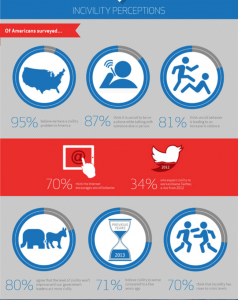
Jim Taylor, a psychologist at the University of San Francisco, writing in the Huffington Post contends that “Civility is about something far more important than how people comport themselves with others. Rather, civility is an expression of a fundamental understanding and respect for the laws, rules, and norms (written and implicit) that guide its citizens in understanding what is acceptable and unacceptable behavior. For a society to function, people must be willing to accept those strictures. Though still in the distance, the loss of civility is a step toward anarchy, where anything goes; you can say or do anything, regardless of the consequences.”
Civility is the action of working together productively to reach a common goal, and often with beneficent purposes. Some definitions conflate civility with politeness, which suggests disengaging with others so as not to offend (“roll over and play dead”. The notion of positively constructive civility suggests robust, even passionate, engagement framed in respect of differing views. In his call for restoring civility, Pastor Rick Warren said, “In America, we’ve got to learn how to disagree without demonizing each other.” Pastor Warren was speaking metaphorically, but the fundamental principle he is trying to restore is the idea that people can still work together even if they do not always absolutely agree with each other’s point of view.
Community, choices, conscience, character are all elements directly related to civility. Civility is more than just having manners, because it involves developing a civil attitude and civil responsibility. Civility often forms more meaningful friendships and relationships, with an underlying tone of civic duty to help more than the sum of its whole.
When people engage in conversation together with civility being a focal point of the outcome in the situation, this is commonly referred to as civil discourse. Kenneth J. Gergen, an American psychologist, suggested that the opinions of all people from all parties must be respected when in civil discourse, as “the language of dispassionate objectivity”. From time immemorial, Freemasonry has promoted democratic habits of honest listening and civil discourse. The origins of the Freemasons dates back to early stonemasons fraternities, and since then has preserved an open environment to allow for a democratic process for alternative ideas.
Incivility Defined
Incivility isrude or unsociable speech or behavior. Incivilityis a general term for social behavior lacking in civility or good manners, on a scale from rudeness or lack of respect for elders, to vandalism and hooliganism, through public drunkenness and threatening behavior. The word “incivility” is derived from the Latin incivilis, meaning “not of a citizen”. Civil behavior requires that people communicate with respect, restraint, and responsibility, and uncivil communication occurs when people fail to do so. In the workplace, incivility can show up as bullying, harassment and deliberate isolation.
Research Evidence for Increasing Incivility
A Google Scholar search of the term workplace incivility returned 23 works published from the years 1996 through 2000. Contrast that with the last half decade (2011 through 2015), which saw 1,700 articles published on this topic.
Here is some other data to illustrate the increasing incidents of incivility:
- Civil discourse is “the free and respectful exchange of different ideas”. Eight out of 10 Americans believe that the lack of civil discourse in the political system is a serious problem.
- Eighty-two percent of American respondents to a 2011 survey felt that political advertisements were too “nasty” and 72 percent believed that political commercials that attacked the opponent were “inappropriate”.
- Research has linked political incivility to reduced trust in the legitimacy of political candidates, political polarization, and policy gridlock.
- Incivility in America continues to erode and rude behavior is becoming our “new normal,” according to the fourth annual study on Civility in America: A Nationwide Survey, conducted by global public relations firm Weber Shandwick and public affairs firm Powell Tate in partnership with KRC Research. This year’s study found that 70 percent of Americans believe incivility has reached crisis proportions. With Americans encountering incivility more than twice a day on average (2.4 times per day), and 43 percent expecting to experience incivility in the next 24 hours, dealing with incivility has become a way of life for many.
- Additionally, 81 percent of Americans think that incivility is leading to an increase in violence. Politicians, America’s youth, the media and the Internet are assigned most responsibility for the problem. Most notably, for the first time since the survey began in 2010, the Internet/social media has risen into the top ranks of perceived causes of incivility. Of those who expect civility to worsen in the next few years, 34 percent blame Twitter – a significant rise from 2012.
- The most recent poll by Weber Shandwick, reported nearly 50% of those surveyed said they were withdrawing from the basic tenants of democracy—government and politics—because of incivility and bullying.
- Half of American parents (50%) report that their children have experienced incivility at school and nearly half of Americans twenty years and older (45%) say that they’d be afraid to be teenagers) today because of incivility’s frequent occurrence.
- Approximately seven in 10 Americans (69%) have either stopped buying from a company or have re-evaluated their opinions of a company because someone from that company was uncivil in their interaction. Further, nearly six in 10 (58%) have advised friends, family or co-workers not to buy certain products because of uncivil, rude or disrespectful behavior from the company or its representatives.
- Nearly seven in 10 Americans—69%—report that cyber bullying is getting worse. An equally large number (72%) worry about children being cyber bullied.
- According to Timemagazine columnist Barton Gellman, threats against President Obama’s life brought him Secret Service protection at the earliest on record for any presidential candidate, and the number of extremist groups in the U.S. has increased 244% since 2009.
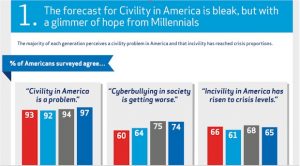
The Causes of Incivility
There are a number of interrelated social, economic and psychological causes for incivility. Here are a few:
- The example set by political and business leaders. When our leaders exhibit uncivil behavior, it gives license for others to do the same.
- Many Americans are stressed these days, given the economic situation and uncertainties about the future. They’re concerned about their jobs and our families; they’re working longer and harder than ever or not at all, and they are not sure when things will get better.
- Economic inequality. Inequality is increasing in the U.S. to unheard of levels, where the 1% are accruing most of the benefits of the booming economy, at the expense of the poor and middle classes.
- Anger, fear and blaming. Frustration with economic conditions for many white working class people has created anger and resentment, often focused on outside targets such as other countries, or immigrants.
- The cult of individualism and lack of restraint—“I’ll do it my way.” When we care little about what others think of us, we think little of them. We feel less bound by respect and restraint.
- Inflated self-worth—People who are self-absorbed don’t value others except as a means to fulfill needs and desires.
- Low self-worth—People who are insecure may become defensive and hostile.
- Materialism—The quest for money and possessions to be happier often is futile and frustrating, resulting in less kindness to others.
- Injustice—People who perceive they have been treated unfairly can become demoralized, depressed, indignant or outraged. The injustice may be a feeling of envy—it’s unfair that you are smarter, better looking, wealthier than I am.
- Anonymity—We move among strangers on the streets; we don’t know our neighbors.
- Disintegration of community and increase in isolation. The cult of individualism, more prominent in the U.S. than anywhere else, has reinforced the beliefs that an individual’s misfortune is their fault, and that society doesn’t have an obligation to ensure basic social welfare for all its citizens. Add to that the increasing phenomena of loneliness in the US and you have a double whammy.

Incivility in the Workplace
According to a survey by Zogby International, almost 50% of the U.S. workers report they have experienced or witnessed some kind of bullying—verbal abuse insults, threats, screaming, sarcasm or ostracism. One study by John Medina showed that workers stressed by bullying performed 50% worse on cognitive tests. Other studies estimate the financial costs of bullying in the workplace at more than $200 billion per year.The consequences of such bullying have spread to families and other institutions and cost organizations reduced creativity, low morale and increased turnover. According to the Workplace Bullying Institute, 40% of the targets of bullying never told their employers, and of those that did, 62% reported that they were ignored.
“Workplace incivility has doubled over the past two decades and has an average annual impact on companies of $14,000 per employee due to loss of production and work time,” according to a new study published in the Journal of Applied Psychology.
Uncivil behaviors at work — put-downs, sarcasm and other condescending comments — tend to have a contagious effect, according to a new study by a management professor at the University of Arkansas and several colleagues. According to the U.S.Department of Labor, there are about 1.8 million acts of physical violence in the American workplace in any given year.
Rudeness at work is contagious, says a study by three psychologists at Lund University in Sweden. They surveyed nearly 6,000 people on the social climate in the workplace. Their studies show that being subjected to rudeness is a major reason for dissatisfaction at work and that unpleasant behaviour spreads if nothing is done about it.
Russell Johnson, an associate professor of management at the Eli Broad College of Business at Michigan State University, explains the subtlety of incivility, noting that it “does not involve openly hostile behavior, threats, or sabotage. As such, incivility is more benign and does not warrant the same legal attention or formal sanctions as other forms of mistreatment. Yet, it is a relatively frequent, low-intensity negative behavior that has a substantial impact on employees”.
It could be as simple as a sarcastic reply to a co-worker’s comment during a meeting. Or a rude sentence in a poorly thought-out e-mail. Johnson believes our increasing dependence on e-mail contributes to the rise in incivility. “I think our communication is less direct,” he said. “A lot of our communication is done over phone or e-mail. It’s hard to understand the intent of an e-mail without any additional language or social or facial cues to go along with it. That creates more ambiguity. And it makes it easier to be uncivil when you’re not face-to-face with someone.”
And one of the big problems is that incivility is sneaky. It’s not in-your-face, like harassment orbullying. Johnson’s study notes that “because incivility (a) reflects a mild form of mistreatment that is likely to go unpunished, (b) is not limited to interactions with those in authority positions, and (c) is easily denied and therefore excused, it occurs more frequently than other forms of mistreatment and, thus, has the potential to create a noxious social environment.”
This comes into particular focus with a new study in the Journal of Management. A research team led by Sandy Lim from the National University of Singapore finds that when people have hostile experiences at work, they’re more likely to be angry or withdrawn when they get home. “Our findings show that the experience of incivility was positively related to feelings of hostility, which was in turn associated with increased angry family behaviors, as rated by spouses,” Lim and her colleagues write. “This suggests that individual emotions do fluctuate on a day-to-day basis in response to incivility at work, and these emotional responses can have consequences even in the home environment.” The research reinforces the link between between how being in a hostile environment at work to expressing hostility in the home.

According to The Cost of Bad Behavior, by Christine Pearson and Christine Porath, incivility is far more widespread than people realize—and it has devastating effects. Here are just a few of the statistics from their research study of 800 employers. Pearson and Porath define it as “the exchange of seemingly inconsequential inconsiderate words and deeds that violate conventional norms or workplace conduct.” In essence, what is considered ‘uncivil’ is based on an individual’s perceptions of actions or words. Sometimes it is blatant, like:
- losing one’s temper or yelling at someone in public
- rude or obnoxious behavior
- badgering or back-stabbing
- withholding important information
- sabotaging a project or damaging someone’s reputation
And others times it may be subtler, like:
- arriving late to a meeting
- checking email or texting during a meeting
- not answering calls or responding to emails in a timely manner
- ignoring or interrupting someone
Incivility Online and in the Media
There is growing evidence that “online incivility” is spreading across social networking sites (SNS) making them a potentially hostile environment for users. The Pew Research Center (PRC) has documented the rising incidence of incivility in SNS-based interactions: for example, 73% of online adults have seen someone being harassed in some way in SNS, and 40% have personally experienced it. 92% of Internet users agreed that SNS-mediated interaction allows people to be more rude and aggressive, compared with their offline experiences. The Facebook “Pages” and the Twitter accounts of actors of public interest such as political parties, magazines, and celebrities provide a typical setting for online incivility.
Many mainstream media outlets have changed from reporting the factual news and honest commentary to either tools of the government or political parties, reporting lies and false information and focusing more on entertainment and sensationalism. Add to that the fact that a large percentage of the American public receives their news from unverified reports on Facebook, and the results can fuel incivility.
A Pew Research Centre survey published two years ago found that 70% of 18-to-24-year-olds who use the Internet had experienced harassment, and 26% of women that age said they’d been stalked online. This is exactly what trolls want. A 2014 study published in the psychology journal Personality and Individual Differencesfound that the approximately 25% Internet users who self-identified as trolls scored extremely high in the dark tetrad of personality narcissism

Psychopathy Machiavellianism and, especially, sadism. But maybe that’s just people who call themselves trolls. And maybe they do only a small percentage of the actual trolling. “Trolls are portrayed as aberrational and antithetical to how normal people converse with each other. And that could not be further from the truth,” says Whitney Phillips, a literature professor at Mercer University and the author of This Is Why We Can’t Have Nice Things: Mapping the Relationship Between Online Trolling and Mainstream Culture. “These are mostly normal people who do things that seem fun at the time that have huge implications. You want to say this is the bad guys,but it’s a problem of us.”
Cellphones are another target for incivility researchers. While most users no longer feel the need to shout into their phones, they may be so wrapped up “in their own little bubbles” that they don’t realize they’re blocking a sidewalk or holding up a line, says psychologist Veronica V. Galván.
Incivility in Political Life
“Crude, rude and obnoxious behavior has replaced good manners and it hurts our politics and culture.” A U.S. News & World Reportcame out with an article on “The American Uncivil Wars” that confronts the amazingly rude state of affairs in which young Americans are in today and concluded incivility is one of the greatest problems that America is faced with.
Nowhere is the problem of incivility more prominent than in politics with political discourse between candidates degenerating into attack ads and worse. The NAACP recently published a report called “Tea Party Nationalism,” exposing what it calls links between various Tea Party organizations and racist hate groups in the United States, such as white-supremacist groups, anti-immigrant organizations and militias. The NAACP report, which counts among its authors, Leonard Zeskind, one of the country’s foremost scholars of white nationalism, says the right wing portion of the Republican Party has become a site for recruitment by white supremacists and others.
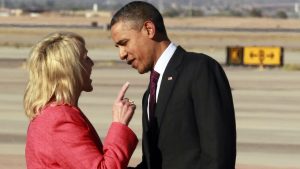
According to a recent poll, the majority of Americans (58%) expect incivility to get worse and they believe politicians (64%) and the internet and social media (63%) are the ones to blame. In fact, some suggest that angry messages spread faster on social media. The news media (54%) also rises to the top of the blame list. Today’s instantaneous, nonstop media coverage may exacerbate the problem–and most think it makes incivility appear worse than it is (64%). On the one hand, most (70%) feel the media has a responsibility to help decrease incivility. On the other, most also think that responsibility shouldn’t come at the cost of censoring free speech: 69% say the media should report news about political candidates, even are uncivil.
Across the United States, a central fear continues to grow: America’s civic fabric is beginning to fray. Three-fourths of Americans believe incivility today has risen to crisis level, and 70% think civility has worsened since President Trump’s election. Unsurprisingly, trust in essential institutions – especially Congress and the media – has plummeted, and nearly 60% report checking out of politics because of the increasingly negative tone. If politicians and other leaders take their cues from those leaders at the top of organizations, and it is clear that incivility is on the rise in America, it’s difficult not to come to the conclusion that President Trump has been a major cause for the rise in incivility.

The Prevailing Business Model Business Leaders Contribute to the Problem
Trump ’s Apprentice TV show, where people eagerly used to await Trump’s now famous edict—“you’re fired”—as some kind of pleasure.
Witness smack-talking Oracle co-founder and CEO Larry Ellison calling the HP board “idiots” for firing Mark Hurd, and ridiculing SAP co-founder Hass Plattner’s “wild Einstein hair” in an email to the Wall Street Journal or even dissing Bill Gates as not being so smart, as reported by Brad Stone and Aaron Ricadela, writing in Bloomsberg BusinessWeek.
Or the legendary stories of Silicon Valley’s success stories like Travis Kalalnick who was forced to resign as CEO because he damaged Uber’s reputation with revelations of sexual harassment in its offices, allegations of trade secrets theft and a federal investigation into efforts to mislead local government regulators. And Kalanick is not an exception in Silicon Valley’s tech industry.
Stanley Bing wrote in the early 1990s: “So it is today, where bullying behavior is encouraged and rewarded in range of business enterprises. The style itself is applauded in boardrooms and in business publications like Business Week, as “tough,” “no nonsense,” “hard as nails.” When you see these code words, you know you’re dealing with the bully boss…thanks to the admiration in which bully management is held in American business and academic gurus who perpetuate the techniques.”
Little is said in the U.S. media or public discussion about how the continuing obsession with short-term profits and the awarding of exorbitant executive pay lay the foundation for a surge in abusive behavior in the workplace to begin with, let alone how the introduction of best-practices of flexible employment, outsourcing of traditional company tasks, and the recourse to workers reclassified as “independent contractors” have opened the door to “management by terror” Reid contends. These changes compounded worker vulnerability in those workplaces already left to the tender mercies of “at-will employment,” a workplace regime dating from the19th century and unique to the U.S.


The Bystander Problem
When an act of incivility occurs, whether it’s road rage, uncivil behavior on a subway or street or in the workplace or school, there’s increasing evidence that people witnessing those events are increasingly less willing to intervene. This is often referred to as the bystander effect.
What separates those who speak up from those who stay silent? On the one hand, you might hypothesize that people who are more aggressive or hostile by nature are more likely to openly challenge a stranger. On the other hand, speaking out against injustice could be seen in a more positive light, as an act of maturity. Emerging research supports the latter idea — that people who stand up to incivility have a strong sense of altruism, combined with self-confidence. Understanding what motivates these heroic individuals could lead to more effective ways of curbing everyday immoral behavior.
Psychologist Alexandrina Moisuc and her colleagues recently published findings from three studies looking at the personality profile possessed by people who say they would intervene in the face of bad behavior. Although there has been extensive research on how situational factors can impact people’s motivation to intervene (i.e. research on the bystander effect), there have been fewer studies looking at the role of personality.
The researchers tested two competing and equally plausible theories about who stands up: the “bitter complainer” versus the “well-adjusted leader.” The “bitter complainer” theory suggests that hostile, aggressive, and insecure people are more likely to become vigilantes out of a desire to unleash displaced frustration onto an unsuspecting target. In contrast, the “well-adjusted leader” theory takes the view that people who intervene are more likely to be confident, stable, and mature.
Overall, the findings seemed to support the “well-adjusted leader” theory rather than the “bitter complainer” hypothesis. People who said they would react to the behaviors depicted in the videos felt more moral outrage (i.e. stronger feelings of anger and disgust), but they did not appear to be inherently more aggressive than other people, as measured by a personality scale. Instead, they scored higher on a measure of altruism, suggesting that their motivation to act was coming from a place of wanting to help others rather than harm the person engaging in the bad behavior.
If anything, Moisuc and her colleagues seem to have found that people who stand up in the face of uncivil behaviors are the opposite of complainers. Instead they seem to possess traits that characterize upstanding citizens: a strong desire to help others, self-confidence, security in one’s place in society, and maturity in handling their own emotions. Other research has supported the idea that people who intervene, have a more positive outlook on others. Psychologists Aneeta Rattan and Carol Dweck found that people who believe that others have the capacity to change are more likely to confront prejudice.

The Experts Weigh In
Pier M. Forni, an award-winning professor of Italian Literature and founder of The Civility Initiative at Johns Hopkins University and author of The Civility Solution: What to Do When People are Rude says Incivility and bullying behavior is also often a precursor to physical violence. Forni says feelings of insecurity only exacerbate the problem. “When we are insecure or not sure of ourselves for whatever the reason because the economy is bad, or we think we are going to lose our jobs … very often we shift the burden of that insecurity upon others in the form of hostility,” he says. “It is the kick-the-dog syndrome. You make an innocent pay for how badly you feel in order to find some kind of relief.”
Writing in the Canadian Journal of Cultural Studies, Roddey Reid, a professor of cultural studies at the University of California contends, “Although a universal problem, bullying enjoys a virulence and prevalence in contemporary U.S. culture virtually unmatched anywhere else in terms of its reach, depth, and legitimacy. Unlike in many European nations and Canada it is not illegal in the U.S.” Reid argues that Americans should not be surprised at the levels of incivility. It’s not like there wasn’t ample warning. “So much macho bluster. Strutting around, talking tough. But following close behind came the actions: fire-bombings of abortion clinics, serial capital executions, gay bashings—not to mention “three-strikes” laws and mandatory sentencing that send citizens off to long prison terms for petty drug offenses, tripling the U.S. prison population within twenty years. Next to come in for brutal treatment were the schools and workplaces: from the presence of police in hallways and zero tolerance drug tests to factory closings and the downsizing of middle-management, to the cutting and privatization of public services and government programs. Even the Post Office became a ‘profit centre of excellence’ meant to compete with private sector enterprises; it also became a centre of workplace violence and shootings,” Reid says.
In the The Case for Civility: And Why Our Future Depends On It well-known author Os Guinness argues that civility needs to be rebuilt in the US if it is to survive as a democracy: “Civility must truly be restored. It is not to be confused with niceness and mere etiquette or dismissed as squeamishness about differences. It is a tough, robust, substantive concept… and a manner of conduct that will be decisive for the future of the American republic”.
But to dismiss signs of courtesy as mere symbols and to argue that what matters is not the outward trappings misses the point, said Richard Boyd, an associate professor of government at Georgetown University. “To fail to be civil to someone — to treat them harshly, rudely or condescendingly — is not only to be guilty of bad manners,” he wrote in a 2006 article, “The Value of Civility?” for the journal Urban Studies. “It also, and more ominously, signals a disdain or contempt for them as moral beings. Treating someone rudely, brusquely or condescendingly says loudly and clearly that you do not regard her as your equal.”
What’s To Be Done
A Consortium of university social scientists launched the Civility Project, at first just to study the problem. With the Beacon Journal’sinvolvement, their efforts have evolved to propose a set of standards which will soon become a public civility metric, inspired by Politifact’sTruth-o-meter.
The Consortium believes that to move away from incivility, we must:
- Set standards for civility in public discourse.
- Use these standards to identify and publicize moments of incivility in public discourse.
From this perspective, the Consortium suggests there are pillars of civility:
- The ability to express an opinion while respecting other people.
- The ability to acknowledge the fact that opinions differ among people.
- The ability to engage in constructive dialogue with other people.
- Civility disagrees with other opinions without disparaging other people.
- Civility disagrees with other opinions without deriding other people’s opinions.
“A national public education campaign endorsed by political leaders, schools, PTAs and corporate America and distributed through the media might be an important first step towards bringing civility back to our shores,” argues Jack Leslie, Chairman of Weber Shandwick.
A second step may have to be legislation that proscribes incivility. In the U.S., 20 states are exploring legislation that would put bullying on the legal radar screen. In Canada, several have passed legislation that addresses workplace bullying, although both countries are far behind some European nations and New Zealand.
Summary:
Americans have become far too accepting of incivility in their lives. Are they numb to incivility? Or do they not realize that a thriving democracy depends on a civil society? Once that civility disappears or is compromised, the democracy decays or disappears. History has many lessons that show us that truth.
Copyright: Neither this article or a portion thereof may be reproduced in any print or media format without the express permission of the author.
Read my latest book: Eye of the Storm: How Mindful Leaders Can Transform Chaotic Workplaces, available in paperback and Kindle on Amazon and Barnes & Noble in the U.S., Canada, Europe and Australia and Asia.
